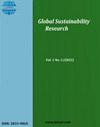Examining the Effect of Urban Household Food Insecurity on Fertility in Lideta Sub-City, Addis Ababa, Ethiopia
引用次数: 0
Abstract
Despite investment and support for family planning in developing countries, some people living in poverty are hesitant to use modern birth control methods, and usage rates are insufficient. Improved reproductive health is directly related to enhanced nutrition, while optimal nutrition fosters superior reproductive health outcomes. This study aims to examine the relationship between household food insecurity and fertility in Lideta Sub-City, Addis Ababa, Ethiopia. A study was conducted on 649 reproductive-age women in three randomly selected Woredas (districts) from a sub-city from February to March 2023. Data was collected through a validated survey by trained individuals, and household income and expenditure were used to measure food insecurity access. Poisson regressions were used to examine the connection between household food insecurity and fertility, considering other covariates. The result of the study shows that food insecurity status was a significant predictor of the number of children ever born. The number of children ever born for women within food-secure households is 0.655 times lower compared to women with food insecurity. Similarly, the age of the mother, marital status, contraceptive use, women's income, and childhood mortality were significant in predicting the effect of the number of children ever born at P < 0.05. Household food insecurity exhibits a negative correlation with the number of children ever born. Thus, it is imperative to recognize food insecurity as a barrier that must be addressed when developing family planning services.研究埃塞俄比亚亚的斯亚贝巴利德塔次级城市城市家庭粮食不安全对生育率的影响
尽管发展中国家对计划生育进行了投资并提供了支持,但一些贫困人口对使用现代节育方法仍犹豫不决,使用率也不足。生殖健康状况的改善与营养状况的改善直接相关,而最佳的营养状况又能促进生殖健康状况的改善。本研究旨在探讨埃塞俄比亚亚的斯亚贝巴利德塔次级城市家庭粮食不安全与生育率之间的关系。研究于 2023 年 2 月至 3 月期间在一个次级城市的三个随机选取的县(区)对 649 名育龄妇女进行了调查。数据由经过培训的人员通过有效调查收集,并使用家庭收入和支出来衡量粮食不安全状况。在考虑其他协变量的情况下,采用泊松回归法研究家庭粮食不安全与生育率之间的联系。研究结果表明,粮食不安全状况是预测生育子女数量的一个重要因素。与粮食无保障的妇女相比,粮食无保障家庭的妇女生育子女的数量要少 0.655 倍。同样,母亲年龄、婚姻状况、避孕药具使用情况、妇女收入和儿童死亡率对预测出生子女数的影响也很显著,P < 0.05。家庭粮食不安全与新生儿数量呈负相关。因此,必须认识到粮食不安全是发展计划生育服务时必须解决的一个障碍。
本文章由计算机程序翻译,如有差异,请以英文原文为准。
求助全文
约1分钟内获得全文
求助全文
来源期刊

Global Sustainability Research
sustainability and environmental focus-
自引率
0.00%
发文量
0
期刊介绍:
Global Sustainability Research (ISSN: 2833-986X) is an Open Access journal dedicated to supporting the rapidly expanding area of global sustainability research. Global Sustainability Research Journal publishes original research and reviews which seeks to address and discuss ways to deliver sustainable development. Manuscripts submitted to Global Sustainability Research must address issues linked with the achievements of sustainability and sustainable development goals.
 求助内容:
求助内容: 应助结果提醒方式:
应助结果提醒方式:


